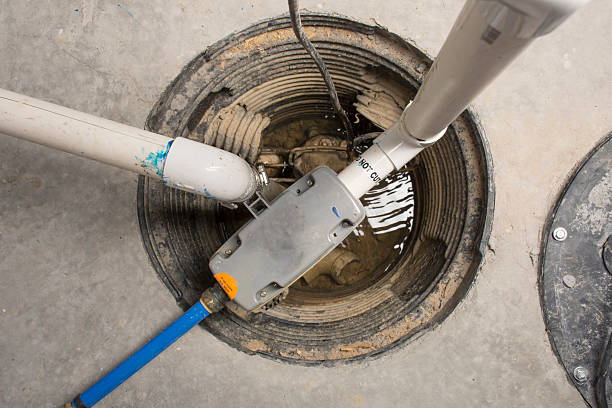
Your sump pump is perhaps the most essential feature in your home for protecting your basement from flooding, says Howzer Management. A functioning sump pump gives you peace of mind; you can sleep or work knowing your house won’t flood.
But you want your sump pump to do its work as inconspicuously as possible. You don’t want it interfering with your quality of life. But that is what will happen if your sump pump starts to emit foul odors into your home.
Why does a sump pump become smelly? How can you fix the problem and make sure it never comes back?
Why does your sump pump smell?
Sumps handle dirty water with lots of organic matter. If the system is not cared for or some parts become broken, the sump pump may smell. Below are six possible reasons why your basement sump pump is smelly.
- Your sump pump is dirty
If the sump pump is not cleaned regularly, it may start to smell. This is because of dirt and debris that accumulate inside the pit. If this buildup is allowed to clog the discharge line, the foul odors inside your home will worsen.
- The sump pump is dry
If a sump pump is not used for a long time, it can dry out and start to smell. That occurs during the dry season. The bad odor is due to sewer gas locked within the system being released into the home because there is no water to hold it back. Sewer gases are a health risk as well as a fire hazard.
- There’s stagnant water in the basin
If water sits inside the sump basin for a long time without movement, mold, mildew, and microorganisms will flourish inside it. Pungent gases and foul-smelling compounds are a common byproduct of bacterial and fungal activities. Getting rid of the stale water in the sump basin may solve the problem.
- The sump pump is used for drainage
If your sump pump is used to transport greywater out of your home (used water from the shower, toilet sink, or washing machine), it can cause the sump basin to stink. Residue from soaps and detergents may stick to the walls and bottom of the pit, causing the basin to smell.
- The sump pump is damaged
Some parts of the sump pump system may be cracked. This kind of damage is common in the discharge pipe. It is also possible that the damage is in one of the drainage pipes that empty into the sump basin.
- Sewage infiltration into your sump pump
There is also a chance that raw sewage may be finding its way into your sump pump. If nearby groundwater has sewage inside, that water could enter the basin and cause the sump pump to smell. It is also possible that the sewage is coming from a broken sewer line on your property.
What to do about your smelly sump pump
- Flush the sump pump regularly
A sump pump basin cleaned regularly is unlikely to smell. Clean the sump pump to remove any sediment or debris inside the basin. Even if your sump basin doesn’t have debris, it can still smell. Prevent this by flushing the pit. To do this, add fresh water to the pit and let the pump remove it normally. Do it twice, at least.
- Clean with bleach
Removing the debris inside the pit and flushing the basin may not remove the bad smell. If the odor has worked its way into the components of the system, it may not be possible to get rid of it with a simple wash. In this case, you should use bleach. Here are the ways you can use bleach to get rid of bad odors in your sump pit:
If the pit is dry, make a solution of one part bleach and three parts water. Pour it into a spray bottle and spray the surface of the basin and the pump. Let the bleach sit, and repeat after two hours.
If there is standing water inside the pit, switch off the pump, fill the entire basin with water, and add bleach to it. Doing so will allow the bleach to reach all the hidden surfaces.
Activate the pump to let the bleach enter the piping and switch it off immediately after. Wait one or two hours for the bleach to work, then switch on the pump and let it empty the pit.
- Use odor-removing tablets
Odor-removing tablets specifically designed for use in sump pumps can help you keep sump pump smells at bay. Use as prescribed by the maker.
Finally, your sump pump may still smell even after you have taken the above steps. If this happens, there is a deeper underlying cause for the problem. To get to the root of the issue, you should get a professional plumber to inspect the sump pump system and nearby drainage pipes.


